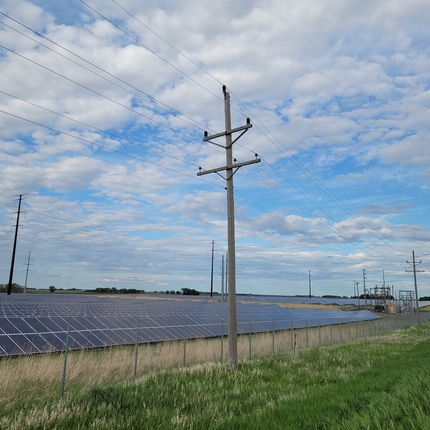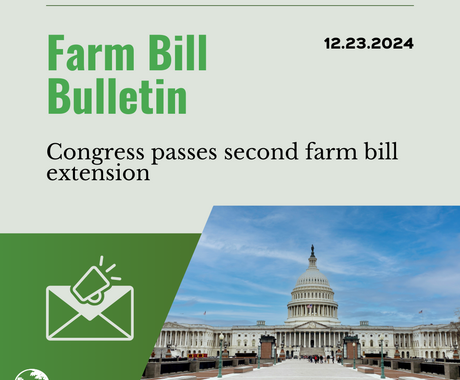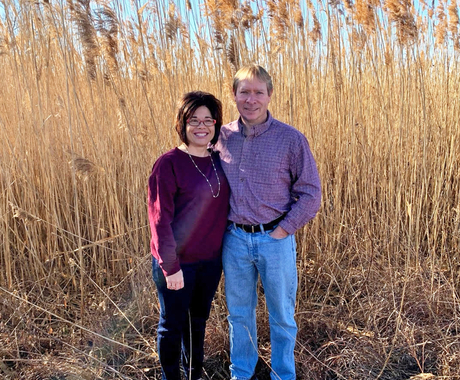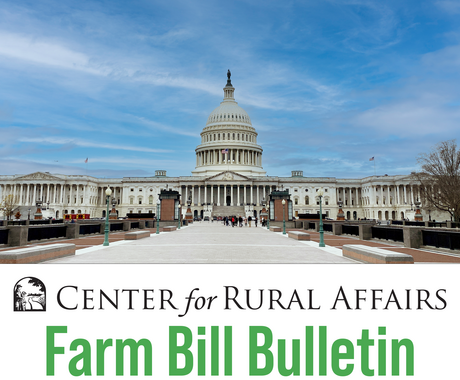After the House and Senate worked a long weekend to pass bills before a midnight deadline, Minnesota’s 2024 legislative session adjourned on May 20.
The session brought progress to Minnesota’s clean energy transition. Here are the bills we closely monitored because of their potential rural impact:
House File (HF) 4700/Senate File (SF) 4784: This bill, which created the Minnesota Energy Infrastructure Permitting Act, establishes clear and consistent timelines for each stage of the permitting process for transmission and large power generation facilities, removes delays and duplications, and requires state agencies to work together to identify and solve problems early in the process. These reforms are expected to shave 9 to 18 months off the total permitting time without sacrificing valuable public input.
Final status: This bill and eight others, including the transportation, house, and labor budget omnibus bills, were passed as part of HF 5247.
HF 3900/SF 3949: This legislation allows the co-location of high-voltage transmission lines and other utility infrastructure in existing rights-of-way corridors and aids in accelerating grid expansion by encouraging the siting of transmission lines on existing rights-of-way, which would reduce conflicts with private landowners.
Final status: This bill and eight others, including the transportation, house, and labor budget omnibus bills, were passed as part of HF 5247.
HF 3704: This bill seeks to maximize new and existing transmission infrastructure. It requires transmission owners to study congestion and identify the frequency in certain areas. Transmission owners are further required to analyze grid enhancing technology that could alleviate the congestion and identify investments the utility considers necessary to modernize the transmission and distribution system.
Final status: This bill and eight others, including the transportation, house, and labor budget omnibus bills, were passed as part of HF 5247.
HF 5171: Under this bill, SolarAPP+, an automated permit processing software developed by the U.S. Department of Energy’s National Renewable Energy Lab, was appropriated $1.5 million from the Renewable Development Account. SolarAPP+ helps local governments save time, resources, and taxpayer dollars when seeking approval and permit issuance for residential solar energy and storage systems.
Final status: This bill and eight others, including the transportation, house, and labor budget omnibus bills, were passed as part of HF 5247.
HF 3457: This bill sought to establish a 60-day limit for state agencies to issue the permits needed for the construction of a large electric power plant or high-voltage transmission line following the Public Utilities Commission’s issuance of a site or route permit for the facility.
Final status: While components of the bill were included in HF 5247, language establishing the 60-day limit was omitted.
HF 3859/SF 3592: This legislation allows the commissioner of employment and economic development to transfer up to $5,000,000 of the Department of Commerce’s fiscal year appropriation between the border-to-border broadband program, low density population broadband program, and the broadband line extension program to meet demand and increase access.
Final status: Language and appropriations were included in HF 5247, but language increasing the cap on the Low-Density Pilot Grant Program from 75% percent of the total project cost to 90% was omitted.
If you have any insight or feedback for your legislators, please reach out to me at [email protected] or 507.513.8545.





